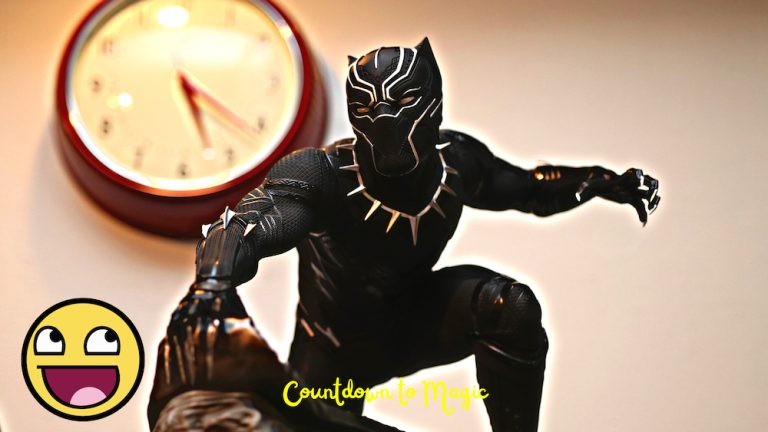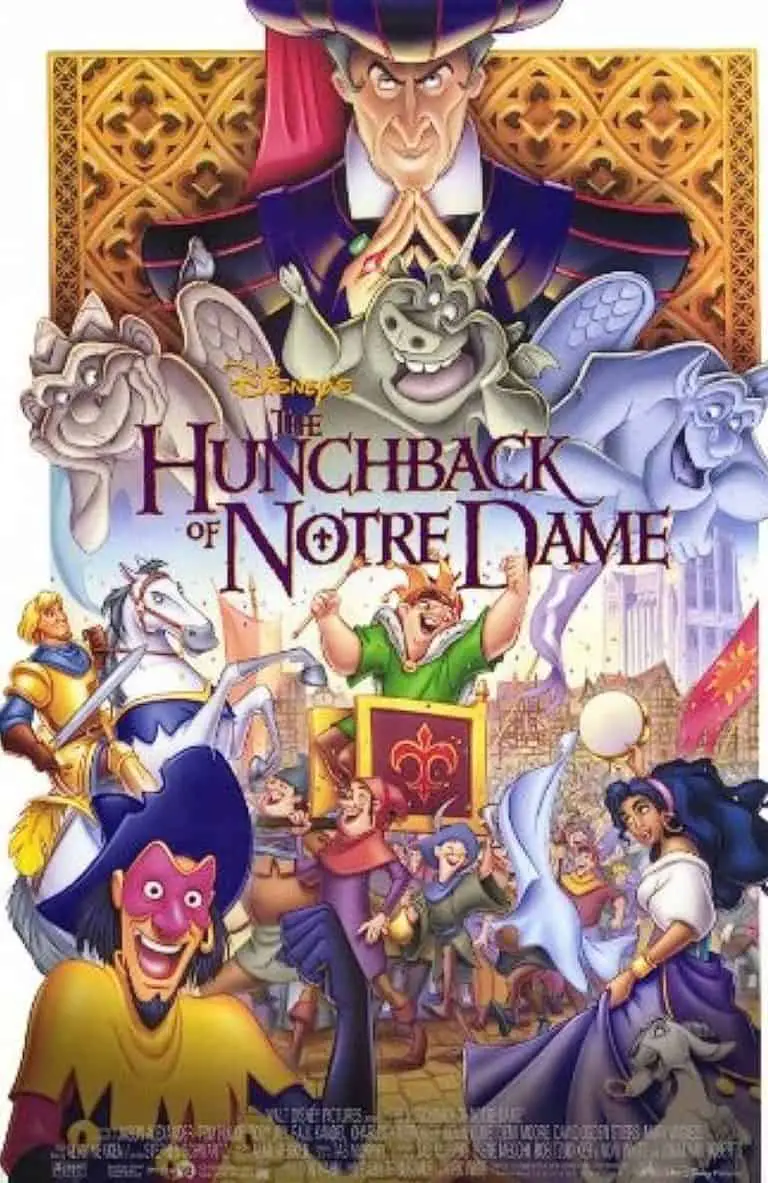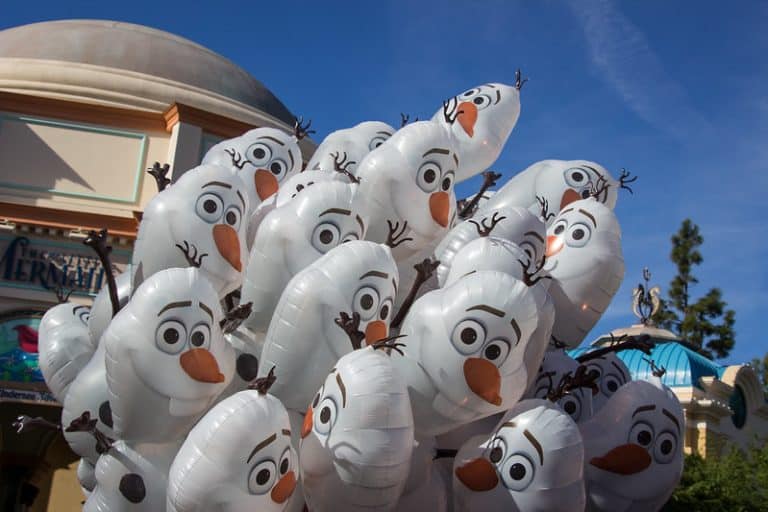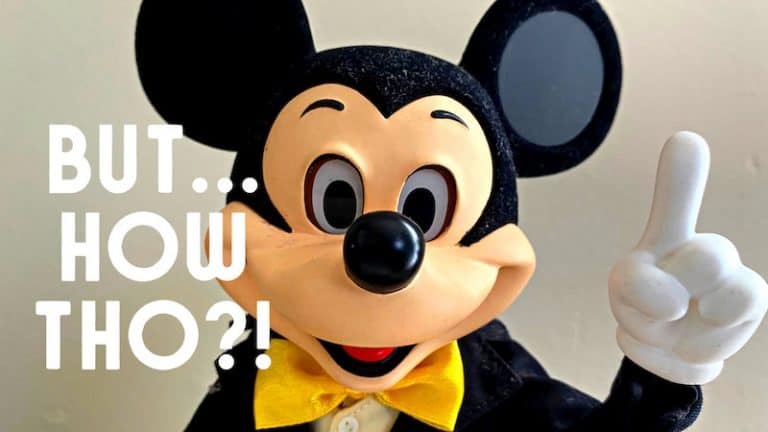15 Best Meilin Lee Quotes from ‘Turning Red’ You’ll Love
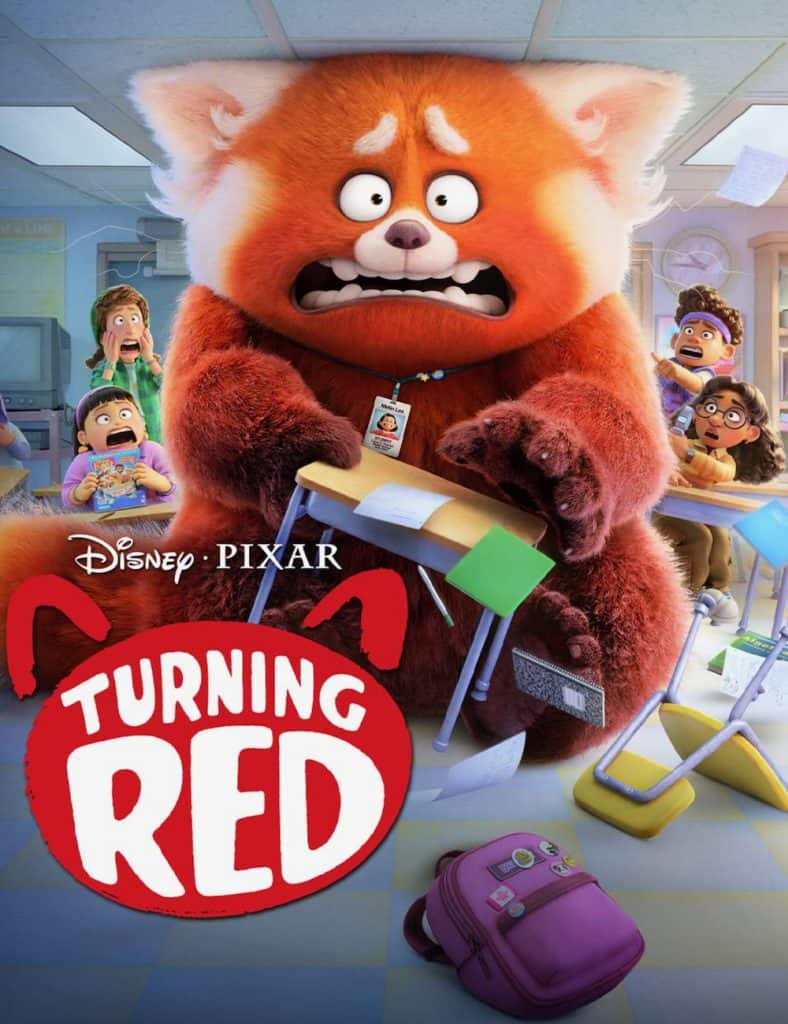
Meilin Lee is the main character of “Turning Red,” a bombastic and energetic thirteen-year-old who plays flute, excels in academics, and has loving friends and family. The only problem? She turns into a giant red panda when she’s overwhelmed or excited. Meilin is a great character, so how about we revisit “Turning Red” by checking out some of the best Meilin Lee quotes!
The Best Meilin Lee Quotes from Turning Red
“The number one rule in my family? Honor your parents.”
The first line of the film is one of the most important, as it sets up Mei’s relationship with her parents and establishes her family background. Family means everything, and her parents and ancestors mean the most to the next generation.
She explains how they do so much for her and how she feels the need to help them back, especially when they give her food, shelter, and love. She shares in the same joys as her parents, and clearly loves spending time with her mother, to the point she resembles her more and more in the photos.
Guess in some cases you can become your mom.
I cannot express enough how awesome this whole sequence is. Mei’s words are impactful, and never once do they falter. Everything is given the perfect amount of time, and never once does it feel like there’s direct or intended animosity between Mei, Ming, and Jin. This is not only a good way to start off the story but introduces the audience to an incredible line of thinking. It is best to respect your parents and all they do for you, so long as they do right for you.
- You Might Also Like: Best Kronk Quotes
- You Might Also Like: Best Mulan Quotes
- You Might Also Like: Best Rafiki Quotes
- You Might Also Like: Best Lumiere Quotes
“And ever since I turned thirteen, I’ve been doing my own thing. Making my own moves, twenty-four seven, three-sixty-five. I wear what I want, say what I want, and I will not hesitate to do a spontaneous cartwheel if I feel so moved.”
Mei’s introduction at the beginning of the film serves two purposes: to bring her personality and spontaneity to the forefront, and to set the real tone of the movie after the heavy introduction.
The entire scene, Mei is showing off her sense of style and her place in life. She’s bringing her friends into the limelight, doing her algebra on the morning bus right, showing off her bus pass for “adults”; everything she does showcases who she is, and she has such an astonishing amount of swagger doing it.
Never once does she complain, even admitting to accepting and embracing all labels. There’s a refreshing determination in her character and interesting level of maturity for her age, especially later when she assists her mom in the temple. Mei is energetic, she is confident, and she knows what she wants, when she wants it, and will do anything to get it.
Keep on getting it, girl!
- You Might Also Like: Best Eeyore Quotes
- You Might Also Like: Best Kuzco Quotes
- You Might Also Like: Best Winnie the Pooh Quotes
“Yes! Okay. No biggies. You’ll figure this out, Lee. Just be the calm, mature adult you totally are. You got this.”
After Mei wakes up in her new red panda form, she realizes her emotions trigger her physical change. When she stays calm, she stays human. She drops this line as she slowly moves back to her bed, musing how she can get through this like a proper adult. On cue, her bed breaks. Had to restrain a laugh there.
Already we see the cracks in her personality and her inner self. Think of the red panda as both a metaphor for puberty and Mei’s emotions. She thinks she’s being mature by stifling herself in this way and not releasing her emotions, but it only serves to do damage to everything around her and cause her shock. She thinks the best way to tackle something like this – given its magical nature – is to handle this in silence like an adult.
She’s suppressing herself and thinks all adults must do the same to be seen as mature and calm. I know teenagers think they know everything, but I honestly think Mei should have come clean here.
Would have saved a lot of emotional turmoil.
- You Might Also Like: Best Pocahontas Quotes
- You Might Also Like: Best Bert Quotes from Mary Poppins
- You Might Also Like: Best Flynn Rider Quotes
“‘Course, some people are like, “Be careful. Honoring your parents sounds great, but if you take it too far, well, you may forget to honor yourself.”
Does it count as irony if this statement was placed in the film before much of the plot, or is that just foreshadowing?
Mei says this as she monologues in the beginning of the film about her family. She casually drops this line, addressing how aware she is of losing herself while acting on her parents’ – mostly her mother’s – expectations. She indicates she has heard the line before but has not entirely taken to heart what it means. Her shift in tone with the next scene really cements it, saying she’s lucky she doesn’t have this problem.
As the eldest daughter in a family of eight, this line hits home. When I was growing up, I wanted to do anything to help my two parents who worked incredibly hard to keep a massive household running. After a while, it started feeling good to help, and I started helping others in the same way. But I started to give less and less for my own time, leaving me drained and hollow.
I learned – the hard way – that while I am still a major help for people in and outside of my home, I’m also me. If I can’t help myself, then I can’t help anyone else. In short, I forgot to honor myself while I honored others, and only noticed the consequences in early adulthood.
So, seeing a lesson like this in a film for children really makes me think other kids will avoid the same path I took. At least, I hope so.
- You Might Also Like: Best Bruno Quotes from Encanto
- You Might Also Like: Best Mike Wazowski Quotes
“This isn’t just our first concert. This is our first step into womanhood!”
Mei drops this line as she vents in the bathroom after being excused from gym class with her friends. Riding high off the emotional rush from nearly hitting Tyler with a dodgeball, Mei expresses her frustrations with her mom and how she wouldn’t let her see 4*Town, and how her friends’ parents wouldn’t do the same.
She equates seeing the concert with her friends to them stepping into womanhood and taking an independent stance in their lives. She wants to step out of childhood and become an adult already. Mei’s tired of being treated like a kid and wants to break free of the mold.
Interesting thing to note that while I have never been to an actual concert, I have been to free-to-attend concerts. However, I remember feeling the same way when I attended my first school dance. I was the same age as Mei, and was more than eager to drink soda, practice my breakdancing skills, and have an amazing night.
I won’t say what happened at my first dance, but I didn’t have the incredible first time I thought I’d have. But the emotions and the feelings made it worth it, and I still consider it a massive steppingstone in my adolescence.
So, anyone saying Mei and her friends are overreacting about not going to a concert can sit on it.
Priorities change with age.
“The panda is a part of me, and you guys are, too.”
Mei delivers this line after fleeing the sealing ritual and meeting her friends in the 4*Town concert arena. She starts talking with them and explains everything she’s come to accept.
She likes who she is now, and understands the panda is a part of her, just as much as her friends are. Mei also admits how she was always after her mother’s approval, and how losing it hurt. However, she breaks down as she says losing her friends hurt far more.
She realizes she values her friends just as much as her family and losing them hurts worse than anything. Mei is at her emotional lowest here, and only when she accepts her faults and mistakes do her friends accept her apology.
This is a genuinely beautiful moment, and it shows how real friends will always accept you despite your faults. Real friends, like family, will always care, and always have your best interest at heart, even if you lose yourself.
Even Disney came to accept Meilin and her panda self, despite some unsavory opinions and controversy.
“I’m not your little “Mei-Mei” anymore, mom! I lied! It was my idea to hustle the panda, my idea to go to Tyler’s party! It was all me! I like boys, I like loud music, I like gyrating! I’m thirteen, Mom! Deal with it!”
Couple of points here. First off, Meilin, 10 out of 10 for confronting your mom, that was beautiful. No notes.
Second, it may not have been the best time to confront her when she was a raging kaiju red panda who could crush the entire arena without so much as a sneeze.
It’s grand that she was finally telling her mother how she really felt about all the expectations and pressure placed on her this whole time. Mei needed to be honest and tell her how she felt now, or she would surely regret it.
Improper timing or no, Mei lets her mom HAVE it, and tells the truth about every lie she’s told her. She lays down the line on her likes, her ideas, and how she was responsible for her own actions, not her friends, not anyone else. She is her own person, she is thirteen, and she will be heard!
“Well sorry I’m not perfect! Sorry I’m not good enough! And sorry I’ll never be like you!”
I regret my prior comment on “becoming your mom”.
Mei unleashing her feelings at her mom is nothing short of cathartic. The whole scene prior is Mei distracting Ming while her relatives create a new sealing circle for the ritual, but Mei takes it to the next level by releasing her feelings and rage at her mother.
Mei still regards her mother as higher than her and hates that she must have that shadow cast over her. She feels stifled and is more than angry over not being allowed to see a simple concert. She’s livid that she can’t be someone like her mother, no matter how hard she tries.
Everyone has a moment where they feel they don’t live up to the expectations of their siblings, their parents, their mentors – that no matter how hard you try, you just can’t shake free the shackles. Even when you work hard and put everything on the line, you’re left feeling like a failure to others and yourself.
Asking for perfection is like asking someone to carry everything on their shoulders. No one is perfect, and expecting such out of anyone, let alone a kid, means you’re putting immense pressure on them.
Even a diamond can break if it’s put under enough pressure.
“You sicko! What were you thinking?! Why would you draw those things?! Those horrible, awful, sexy things?!”
Mei vents all of this in the aftermath of her mom finding her notebook drawings and confronting the store clerk she was drawing from the Daisy Mart. Not only did her mom see her first bursts of puberty and sexual attraction, but she also took it to the nth degree and misinterpreted her attraction as something more dire.
And instead of asking why her mother would do something so embarrassing and wrong, Mei is asking why she would draw these sorts of things and enjoy doing it.
It really hurts to see Mei try to rationalize her newfound emotions without some sort of guide. Makes me wanna give her the biggest hug and explain this all away. However, I am not going to sit here and say nothing like this has happened to me. To my knowledge, everyone has kept a diary, or a sketchbook, or a magazine, that was full of material that would make their parents blanche on contact.
I had more than one notebook like this, but I just learned to hide my stuff away from prying eyes.
. . . never found them, though.
“My panda, my choice, mom.”
I think Twitter had a field day with this quote.
Ming confronts Mei about how she’s dressed – exposing her red panda ears and tail – as she prepares to leave with her friends to karaoke. Mei responds with this line, and a side glance, before she hugs her mom and says they will be back before dinner.
She may be a teenager, and she may be freer than before, but she can’t quite fly off the handle and do whatever she pleases. She still has limits with her mother and herself, and she needs to maintain them.
This entire scene is great; it shows so much growth from Mei and Ming and how their relationship has evolved because of it. Mei has embraced herself, and Ming is not only allowing her daughter to be herself but remaining open and trying to understand her. She can still parent Mei, but not all of her. She has boundaries she can’t overstep, the same as Mei.
It’s not just Mei who changes on her journey; she changes those around her.
“I’m changing, mom! I’m finally figuring out who I am. But I’m scared, it will take me away from you.”
This is the best Meilin Lee quote, and a line that left me tearing up when I first watched the movie. After a heartbreaking scene between Mei and her mother’s inner child, Mei talks to her mother as she passed through the portal to seal her red panda. Ming desperately tries to have Mei give up her panda, to follow her. And in response, Mei says this.
She’s finally growing up and coming into her own. At the same time, she doesn’t want to experience the same pitfalls her mother and grandma went through. She wants to grow and become herself, but not at the expense of leaving her family behind. Mei cares about her family, and sees their love in everything they do, and wants to break the cycle of intergenerational trauma before it affects her any further.
This is an incredible moment that left me a blubbering mess. It’s very beautiful.
“Sometimes I miss the way things were, but nothing stays the same forever.”
This is the most somber line Mei says in the film. She says this in the narration as she leaves for karaoke with her friends, looking back at her mother. After everything she’s been through, she still thinks back to the past – despite it being a few months prior – and wants things to go back to how they were then.
However, her present is far better: she’s allowed to be herself, she’s freer than before, and she is on better terms with her mother. She knows it’s hard to maintain a new normal, but does acknowledge nothing stays forever, and that like her, everything changes.
Change is always a difficult thing. You want things to stay the same, either because it’s convenient, or it’s comfortable. It feels like it should stay that way forever, but change comes when people least expect it. It could be from some mistake, some random weather, or something you think you could have controlled. And once the dust dies down, it’ll be up to you to get to your new normal.
Getting there is never easy. It could be messy, uncomfortable, or downright scary. You’ll be walking a whole new path, but so long as you have a good set of legs, you’ll get where you need to go. Having travel companions never hurts, either. Then one day, after doing everything and anything to keep your head up, you’ll look around and find your new normal. And you’ll be glad you’re there.
“I know what it looks like. I am my own person. But that doesn’t mean doing whatever I want. Like most adults, I have responsibilities.”
What makes this line from Mei so interesting is how she’s actively contradicting her past words. Mei narrates again as she races home to the temple to meet her mother for temple duties, i.e., sweeping the rounds, leading guided tours, cleaning statues, preventing graffiti, etc.
She compares herself to an adult with full responsibilities and a job, and in a way, she is right. She helps to run a business with her mom and acts accordingly in her own home.
Where she contradicts herself is how at home, she can’t be herself, or act the way she wants. She must maintain her grades, maintain the temple, maintain her behavior; she can’t just be a kid. She’s already seeing herself as a small adult and isn’t taking joy in anything she’s doing. She only takes joy from it after seeing her parents’ joy from it.
More power to her for being mature for her age, but it hurts when a kid just can’t act like one.
“It’s easy. When I start to get emotional, all I do is imagine the people I love most in the whole world. Which is you guys.”
Mei casually says this line after completing an emotional gauntlet designed to make her bring out her panda. This only comes after realizing how thinking of her friends neutralizes her emotional outbursts. She feels like she can be herself around them, and that they’ll accept her no matter what. She discovers how good it feels to find a happy place for yourself and does acknowledge that the people who occupy it may not always be those who raised you.
However, instead of telling her parents this, Mei lies and says she thinks of her parents during those moments. She knows she can’t tell her mother her friends were there, and the last thing she wants to lose at that moment is her parents’ love and trust.
She can’t even say she values the opinions of her friends more than her own mother, especially given her current circumstances. This is only the first of many lies Mei says that spiral into a long journey of self-discovery and liberation for her.
Compare this to the journey the film’s director Domee Shi went through to create this film, and you’ll see she really did draw on so much of her life to create Mei.
Simply incredible!
“We’ve all got an inner beast. We’ve all got a messy, loud, weird part of ourselves hidden away. And a lot of us never let it out. But I did. How about you?”
The film ends with an image of Mei, her friends, and family posing with 4*Town after the ruined concert with Mei narrating how she came to unleash her inner beast. She addresses the audience head on and says they each have a messy, weird part of themselves, and how she let hers out. The final line of the film gives the audience an interesting question: would they unleash their own inner self?
Mei embraced herself, flaws and all, and came out of her journey better than when she began it. She came to appreciate her inner panda, and accepting it allowed her to change not only herself but her mother and grandmother. She grew because she let out her beast.
Have I done the same?
I like to think I have.
Can’t exactly be an anime fan, a writer, an artist, and a great aunt without unleashing yourself.
- If you enjoyed this article on the best Meilin Lee quotes from Turning Red, please “like” my Countdown to Magic Facebook page!
This article was written by Kaylee and edited by Michael.
